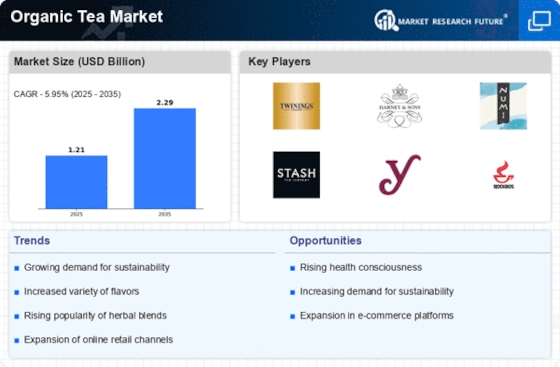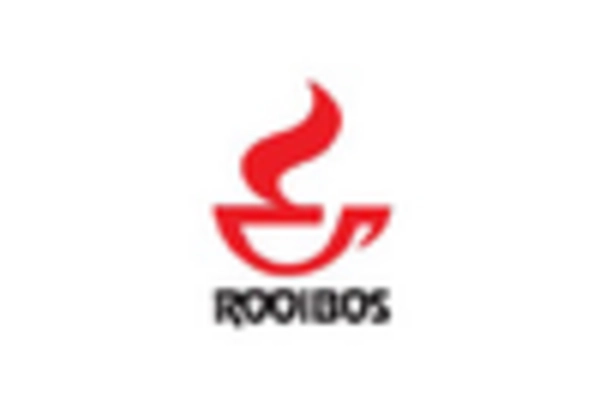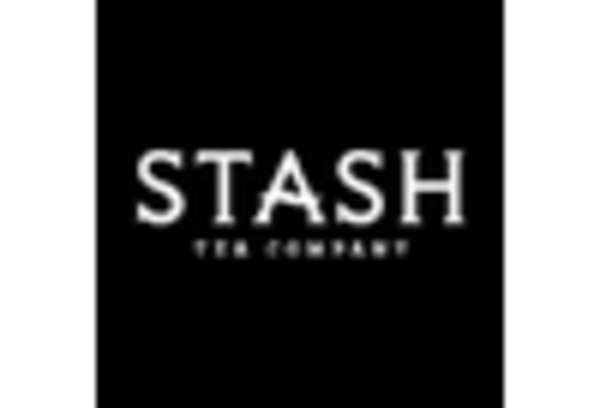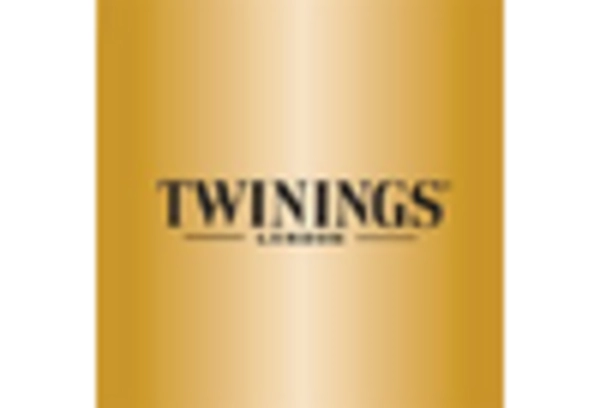Market Share
Organic Tea Market Share Analysis
In the thriving Organic Tea Market, companies deploy diverse market share positioning strategies to distinguish themselves, cater to health-conscious consumers, and navigate a competitive industry. One primary strategy revolves around the organic and natural characteristics of their tea products. By sourcing tea leaves grown without synthetic pesticides or fertilizers, companies align with the growing demand for organic and environmentally friendly choices. This focus on purity and sustainability allows them to attract consumers seeking healthier alternatives and positions their brand as a trustworthy player in the organic tea space.
Strategic partnerships and collaborations are integral components of market share positioning within the Organic Tea Market. Companies often form alliances with organic farms, fair trade organizations, or retailers to strengthen their supply chain, ensure quality, and enhance sustainability practices. Collaborative efforts contribute to the overall positive image of the brand, showcasing a commitment to ethical sourcing and fair labor practices, which resonates with socially conscious consumers and strengthens a company's market position.
Pricing strategies play a crucial role in shaping market share dynamics within the Organic Tea Market. Some companies adopt a value-driven approach, aiming to make organic tea accessible to a broader consumer base by offering competitive prices. On the other hand, premium pricing strategies position organic tea as a high-quality, premium product, targeting consumers willing to invest in superior taste and quality. Effective pricing strategies allow companies to capture different segments of the market and establish a competitive edge.
Distribution channels are pivotal to market share positioning, and companies in the Organic Tea Market focus on building robust and diverse distribution networks. Collaborations with health food stores, specialty retailers, and online platforms ensure that organic tea products are readily available to consumers seeking natural and eco-friendly options. An optimized distribution strategy contributes to a company's ability to reach a wider audience and capture a larger share of the market.
Brand image and reputation are paramount in the competitive landscape of the Organic Tea Market. Companies invest in branding and marketing efforts to highlight the health benefits, sustainability practices, and unique flavors of their organic tea products. Emphasizing factors such as eco-friendly packaging, transparent sourcing, and fair trade certifications contributes to building a strong brand identity. A positive brand image not only attracts health-conscious consumers but also fosters brand loyalty, playing a vital role in sustained market share growth.
Innovation is a driving force in the Organic Tea Market, with companies exploring new tea blends, flavors, and brewing techniques. Research and development efforts lead to the creation of innovative organic tea products that cater to evolving consumer tastes and preferences. Launching unique blends and staying ahead of industry trends allow companies to differentiate themselves, attracting a diverse consumer base and solidifying their market share.
Sustainability is an increasingly important factor in market share positioning within the Organic Tea Market. Companies that adopt sustainable farming practices, eco-friendly packaging, and ethical business practices resonate with environmentally conscious consumers. A commitment to sustainability not only aligns with global environmental trends but also enhances a company's reputation, contributing to increased market share.


















Leave a Comment